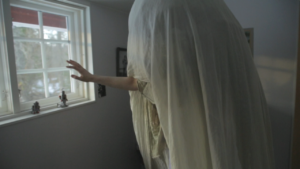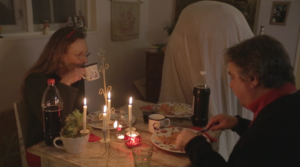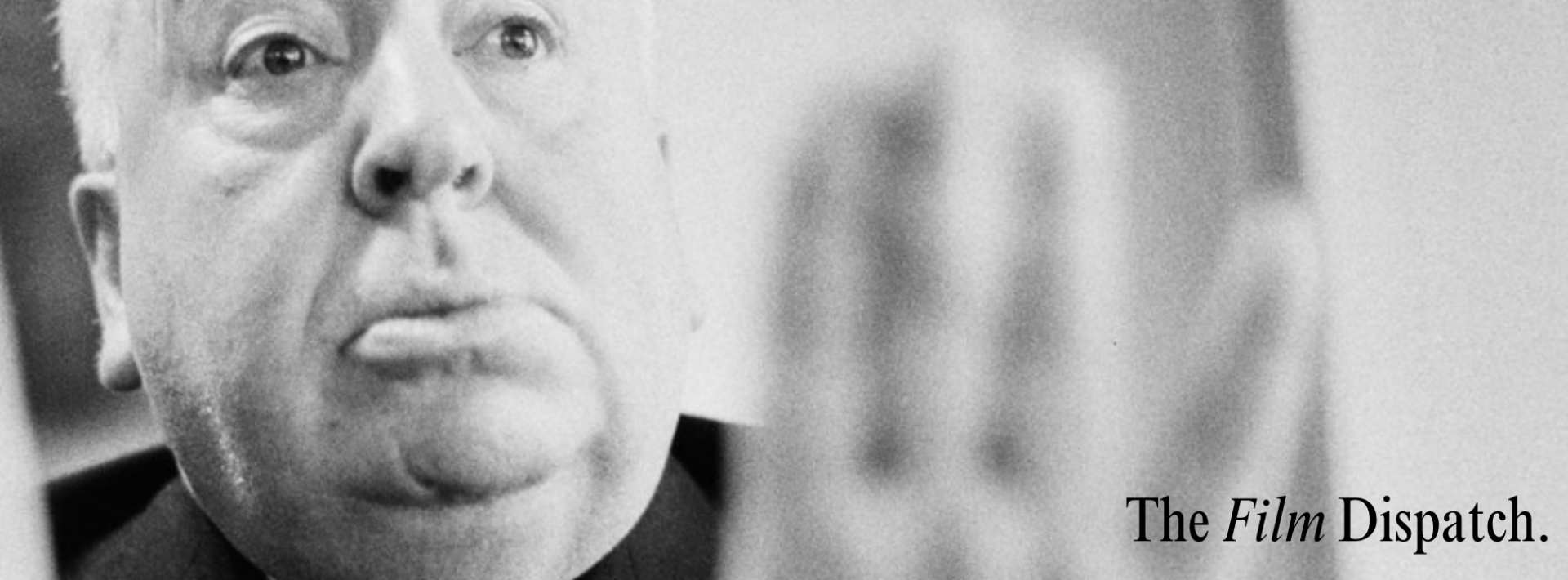
With the Edinburgh International Film Festival opening tonight, we spoke to director Marie Lidén about her documentary feature – Electric Malady (2022) – which is screening at the festival.
The film follows William, a young man who after contracting a mysterious illness called Electrosensitivity (ES). Electrosensitives (people who suffer from electrosensitivity) cannot use technology – including phones, computers and the internet – without enduring debilitating symptoms. To stay well, William had to isolate from society in a remote cabin in the Swedish wilderness.
How did you discover William?
I was getting to the age my mum was when she developed Electrosensitivity and I started thinking about it a lot. Mum has fully recovered from the illness and we don’t really talk about it anymore. It’s just something very strange that we went through many years ago. I wondered what it would be like to be electrosensitive today when we are constantly surrounded by mobile phones and wifi networks, something that wasn’t really a thing in the 80s.
There is a paper that goes out to ES sufferers in Sweden. I placed an ad there, asking for stories and experiences. I was completely overwhelmed with responses from all over the Nordic countries, written letters poured in and some phone calls. William’s dad was one of those calling. I spoke to his dad on the phone a few times before I decided to go out to visit William.
How did your own family experience of Electrosensitivity inform the film?My experience of Electrosensitivity is from within a family, through the eyes of a child. I was eight when my mum got ill and it had a huge impact on my life. Though she is well today it took her about ten years to fully recover. So I knew I wanted to follow the journey of a family currently going through that experience. In the beginning, we filmed several people. My mum was going to be featured and my own story was going to be a thread through the film but over the years William started taking more and more space in the film. Finally, in the editing process we decided that this family’s story was what the film was about. I am sure that my own experience also made William and his family more able to trust me and to let me into their life.
You have talked about Scotland being your adopted home. How important is it for you as a filmmaker to have your film screened at EIFF?
It’s a real honor to be able to screen at EIFF. Not only because it’s a prestigious festival but this is my home screening. I moved from Sweden to Scotland in 1999. Many of my friends and colleagues who supported me through the making of the film are going to be there and I am so excited for them to see it.
You have talked about needing to use a particular type of film in order to accommodate William. How did the technological restrictions affect the making of the film?
The visual style of this film definitely grew out of the filming process. We did a lot of testing with equipment before we properly started filming and what seemed to work best was a hand cranked 16mm film camera and a smaller digital camera. We couldn’t really use anything bigger. No lighting. We used a directional mic and kept our distance whilst filming. At one point we were trying to mirror light from the outside of the cabin. But even so, us being there filming had an effect on William. Sometimes he would spend a whole day recovering in his bed afterwards so we had to include that in the planning of how to film. It is a strange feeling and added responsibility when your presence has a physical effect on your subject.
The tagline: ‘the loneliest form of suffering is to suffer invisibly’ is very moving. Usually when we consider how technology is isolating us, we think about over-use rather than an inability to use technology. Do you believe that making a film about William’s experience has changed the way you view technology and loneliness?
I think that growing up with a mother who suffered from ES gave me a different perspective of withdrawing from society. For years we lived without electricity and everyone thought I had a strange mum who became obsessed with trying to prove that what she suffered from was real. I saw the loneliness and otherness that that creates.

William’s situation is way more extreme than most electrosensitives. Spending time with him was sometimes very hard and many times I felt devastated after leaving him, knowing how lonely he was. I think many people romanticize a life off grid without technology, removed from the modern world but William never wanted that. He loved his mobile phone and living in the big city. It was never a choice for him.
I think about my mobile phone use a lot more. I try not to hold it against my head. I try to minimise my exposure to wireless radiation. I don’t feel affected by radiation but I have read enough studies to want to protect myself a bit. So, in that way it’s changed the way I interact with certain technology and spending time with William definitely put my understanding of loneliness in perspective.
What do you hope that audiences take away from the film?
I would like people to appreciate their freedom a bit more and how easily that could be taken away. Perhaps not to be so quick to judge. To listen to others. There are many who suffer from invisible illnesses or illnesses that are less understood and to try to be more mindful of that.
If you have any future projects coming up, we’d love to hear about them.
I am developing a series and another feature documentary but they are still little babies and I am not ready to put them out in the world just yet. Fully embarking on another big project feels a bit overwhelming but I will get there soon. I am very curious about topics and stories that are little understood by people so that is the direction that I am heading again.
Tickets for the screening of Electric Malady on Saturday 13th of August are sold out. The second screening takes place on Thursday 18th of August. Tickets can be found on the EIFF website. Director Marie Lidén interviewed by Niamh Carey-Furness for The Film Dispatch.

